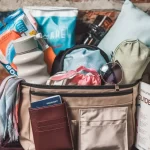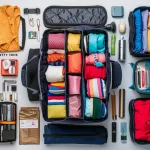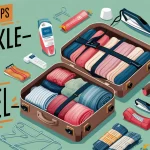When you’re on the move, Traveling with temperature-sensitive medications properly refrigerated can be a challenge. Whether you’re traveling for business, pleasure, or medical reasons, maintaining the correct temperature for your medicine is crucial. This guide provides practical tips and recommendations to ensure your medications stay at the right temperature while you’re on the go.
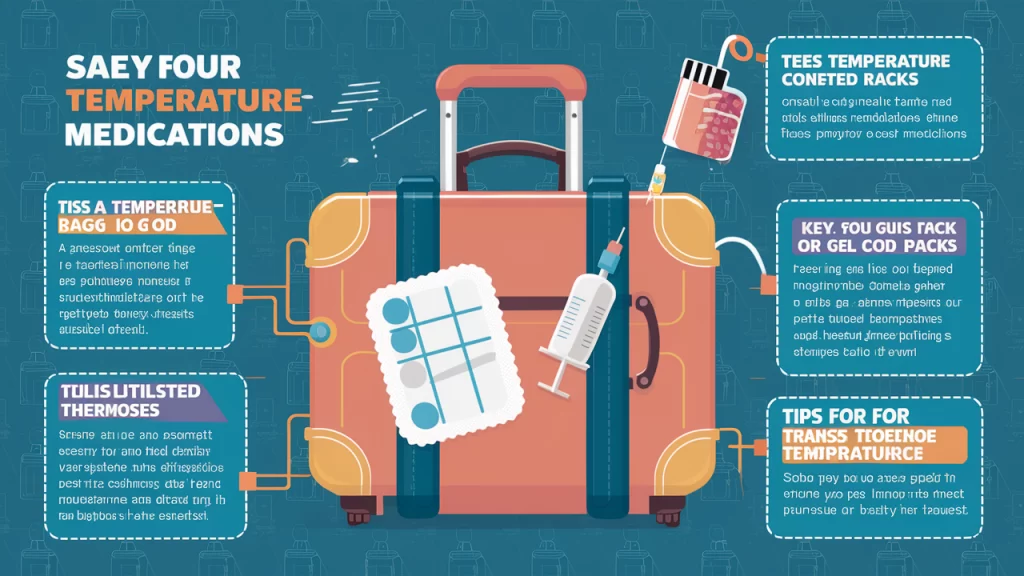
Content
Understanding Temperature-Sensitive Medications
What Are Temperature-Sensitive Medications?
Temperature-sensitive medications include those that must be kept within a specific temperature range to remain effective. Common examples include insulin, certain vaccines, and biologics. These medications can degrade or become ineffective if exposed to temperatures medications outside their recommended range.
Why Proper Storage is Essential
Proper storage is essential to ensure the efficacy of temperature-sensitive medications. Exposure to extreme temperatures—either too hot or too cold—can compromise the effectiveness of your medication, potentially leading to health complications.
Choosing the Right Travel Cooler for Your Medications
Best Travel Cooler for Medication
Selecting the right travel cooler is key to maintaining the required temperature for your medications. Look for a cooler that offers reliable temperature control and sufficient space for your medication. Features to consider include:
- Temperature Stability: Choose a cooler with a proven track record of maintaining a consistent temperature.
- Size and Capacity: Ensure the cooler fits your needs and can accommodate your medication and any necessary ice packs or gel packs.
Some top-rated options include portable coolers with built-in temperature monitoring systems and those designed specifically for medical use.
TSA Approved Medicine Cooler
When traveling by air, it’s important to use a TSA-approved medicine cooler. These coolers are designed to meet airport security regulations while keeping your medications properly chilled. Look for coolers labeled as TSA-approved and ensure they come with proper documentation to avoid any issues at security checkpoints.
Tips for Using Your Medical Grade Cooler
What is a Medical Grade Cooler?
A medical-grade cooler is specifically designed to store temperature-sensitive medications under controlled conditions. These coolers often feature advanced temperature regulation systems and are built to maintain precise temperatures.
How to Use a Medical Grade Cooler
- Pre-cool the Cooler: Before packing your medication, pre-cool the cooler according to the manufacturer’s instructions to ensure it’s at the correct temperature.
- Use Ice Packs or Gel Packs: Place ice packs or gel packs in the cooler to help maintain the required temperature. Ensure that the packs are not in direct contact with your medication to avoid freezing.
- Monitor Temperature: Many medical-grade coolers come with temperature monitoring systems. Use these systems to regularly check that the temperature remains within the required range.
Traveling by Air: Additional Considerations
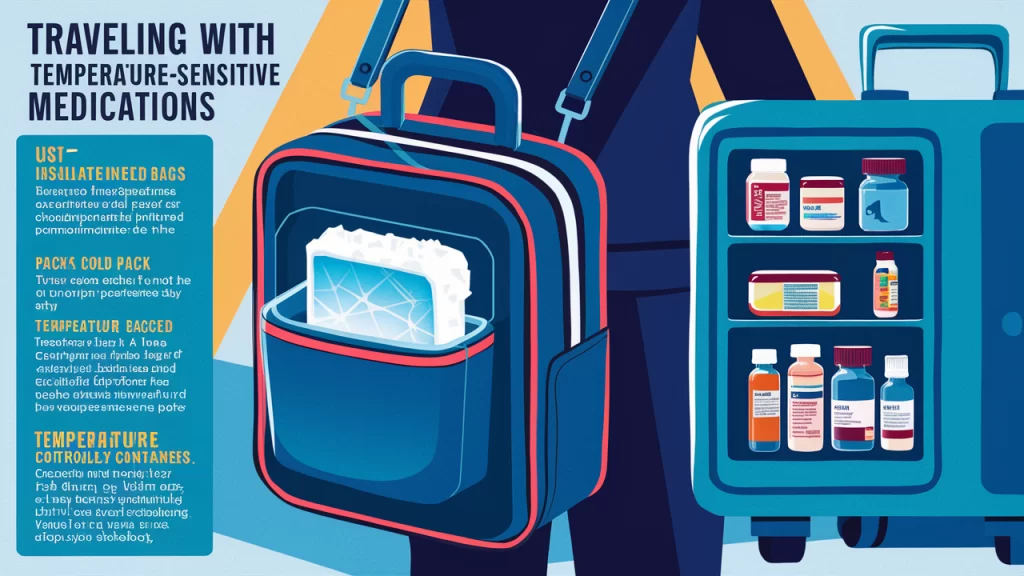
Packing and Security
When flying, ensure that your medication and cooler comply with airline regulations. Pack your medication in its original container, and keep a copy of your prescription or a note from your doctor explaining the necessity of the medication and its storage requirements.
Handling Delays
Be prepared for potential delays and have a backup plan in case your flight is delayed or your cooler malfunctions. Carry extra ice packs and keep your medication with you in the cabin if possible, rather than in checked luggage.
Portable Refrigerators
For extended trips or when traveling by car, a portable refrigerator can be a good alternative. These devices plug into your vehicle’s power outlet and offer reliable refrigeration for longer periods.
Insulated Bags with Temperature Control
Another option is an insulated bag with temperature control features. These bags are designed to maintain the right temperature for a range of medications and are often more compact and lightweight than traditional coolers.
Conclusion
Traveling with temperature-sensitive medications requires careful planning and the right equipment. By choosing the best travel cooler for medication, utilizing a TSA-approved medicine cooler, and understanding the benefits of a medical-grade cooler, you can ensure that your medications remain effective and safe throughout your journey. With these tips, you can travel with confidence, knowing your medications are well-protected.

An avid traveler, Kirk Grover has been to over 50 countries. He has an extensive background in tourism and hospitality management, along with a degree in Hospitality Management from the University of Nevada Las Vegas. Kirk is very knowledgeable about travel-related topics – they are always up to date on the latest deals for flights, hotels, and other adventures around the world.




